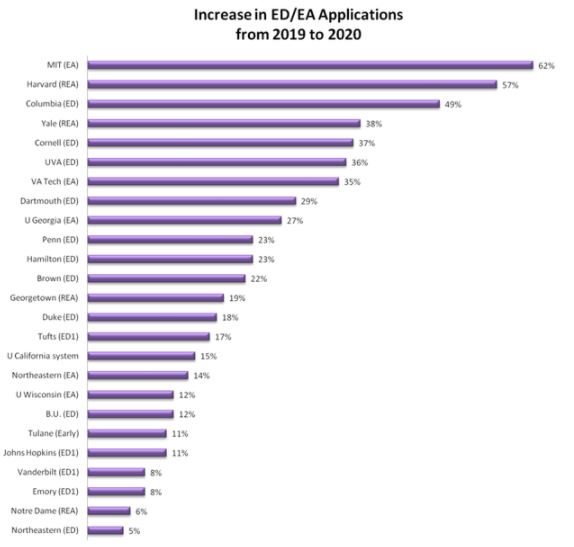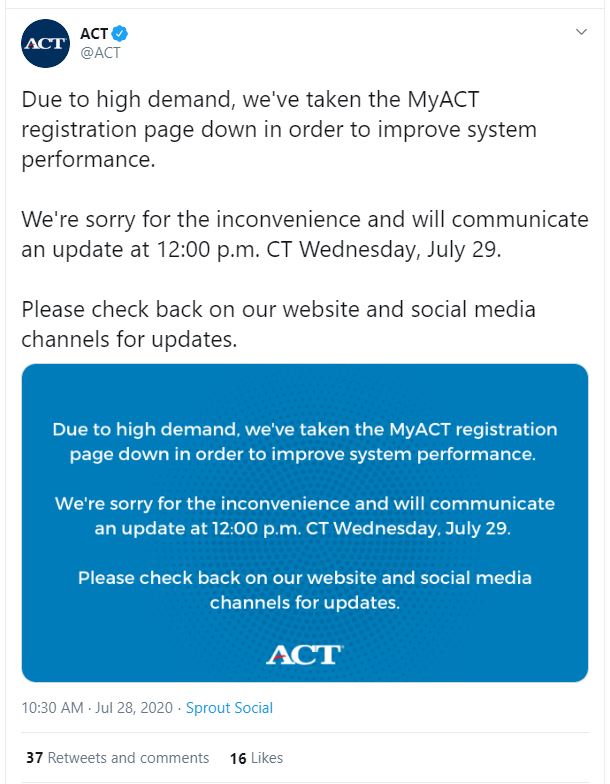Morning Edition on NPR aired a terrific piece this morning – How The Coronavirus Has Upended College Admissions – that covers how COVID-19 and its impacts on SAT and ACT availability, pass/fail grading systems, and the ability for students to be active in their schools and communities will require universities to adjust their application review processes. It’s worth a listen.
Along similar lines, a frequent topic on college admission message boards and email listservs is how COVID and its effects might impact the number of SPOTS available in the 2021 first year class. There are many variables to consider. It seems clear that many schools will face unwanted enrollment declines as families decide against sending their students far from home, against paying high tuition rates for online classes, choose to defer enrollment for the year altogether, etc. What will this mean for next year? Will this year’s non-matriculated or deferred student take a spot from a 2021 applicant?
I lean in the no category here – the vast majority of schools, including many perceived as “prestigious,” are going to want to enroll all of those students PLUS a robust first year and transfer population that returns their overall full time enrolled undergraduate population to pre-COVID levels as quickly as possible. The reason? Most schools (not all, but most) can’t afford not to. They’ve lost too much money this past spring and are facing more losses this upcoming school year.
There’s a catch, however. One – can schools enroll more students without an increase in their financial aid budgets? I assume financial aid budgets will be fairly stagnant for a few years because of COVID-related losses, so likely not (or at the very least, it’s going to require some creative financial aid packaging to do so). Two – it’s not like there are more high school graduates out there. See this great NPR piece for evidence as to why. Where will these extra enrollments come from if they come from anywhere at all? Wanting to enroll more doesn’t mean a school will be able to.
And then there’s the population that stands to be advantaged. Who are they? Those who are always advantaged, for one – students and families capable of paying the full cost of attendance. Disadvantaged? As is the case at almost every college in America, those who can’t (so very, very few are need-blind and almost all have defined financial aid budgets).
So where will additional students come from? From each other, of course, keeping enrollment numbers where they need to be at some while further lowering them at others. What about adult learners – can they fill the gaps? At some places, sure, but much will hinge on the economy and, again, financial aid opportunities.
It’s enough to make one’s head spin. And yet, as I always say, all students can do is control what they can control. None of us has the power to have an impact on anything that I’ve laid out here. Fortunately, there are thousands of great colleges in the United States, public and private. Students who stay open-minded and see the tremendous opportunities that exist at all types of schools, regardless of perceived national prestige and national ranking, will have a bright college future ahead of them.





